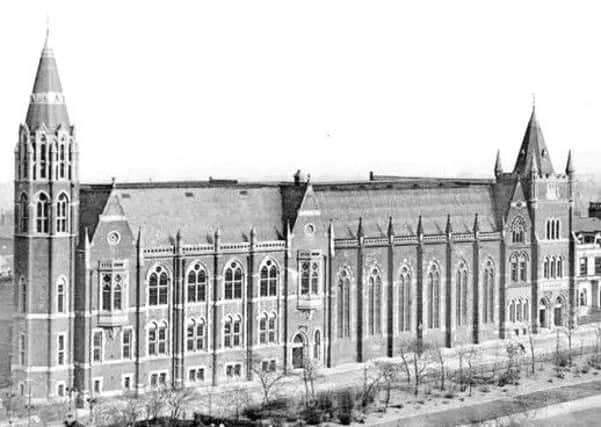On The Waterfront: The great maritime fair at Sunderland's Victoria Hall between disaster and German bombing


One such event, held in 1926, was aimed at raising funds to complete the town’s new Missions to Seamen Institute and Home in Tatham Street.
Billed as a ‘Grand Marine Fair and Nautical Exhibition’, the three-day event was held between November 9 and 11 inside Victoria Hall and its extensions Alexandra and Edward Halls, at the corner of Toward Road and Laura Street.
Advertisement
Hide AdAdvertisement
Hide AdAlthough high unemployment prevailed in the town, it was hoped that a significant sum could be raised towards the Missions’ building fund, which already stood at £12,000 – some £4,200 below target.
Construction of the new Institute was intended as a memorial and acknowledgement to seamen for their immense wartime sacrifices.
Claimed to be a unique event and first of its kind on the North East Coast, the first day was opened by Alderman Walter Raine MP, the second by National Seamen’s and Firemen’s Union President J Havelock Wilson MP, and day three by Admiral Sir Reginald Godfrey Otway Tupper.
The fair included more than 40 stalls, some bearing the names of famous world ports, such as Bombay, Calcutta, Shanghai and Valparaiso. Members of local Church, seamen’s and social organisations were in attendance; a “practically unlimited” variety of goods also being on sale.
Advertisement
Hide AdAdvertisement
Hide AdInside Edward Hall, the Nautical Exhibition comprised a range of attractions of both local and general interest. Besides numerous valuable models and illustrations of sailing ships, steamers, lighthouses, lightships, dredgers and other vessels - many of which had been built on the Wear and sailed by local mariners – a number of war relics loaned by HM Chatham Dockyard were on display.
These included artefacts from the battle cruiser HMS Invincible (sunk at the Battle of Jutland); light cruiser HMS Arethusa and cruiser HMS Hampshire (both mined in 1916).
Another exhibition showed models and etchings of ancient and modern ships by two Wearside ex-servicemen – on sale to raise funds.
A model of the new Missions to Seamen Institute – complete with furnishings – was showcased, while a working model of the latest North Eastern Marine Werkspoor marine diesel engine and model of Columbus’s flagship Santa Maria were other highlights.
Advertisement
Hide AdAdvertisement
Hide AdWearside Prize Orchestra provided entertainment, along with mannequin parades, children’s dancing displays, dramatic productions and sea songs and shanties sung by local sailors.
The event was regarded as highly successful with receipts amounting to £2,317, which after expenses plus individual donations, made a substantial contribution to the Institute’s building fund shortfall.